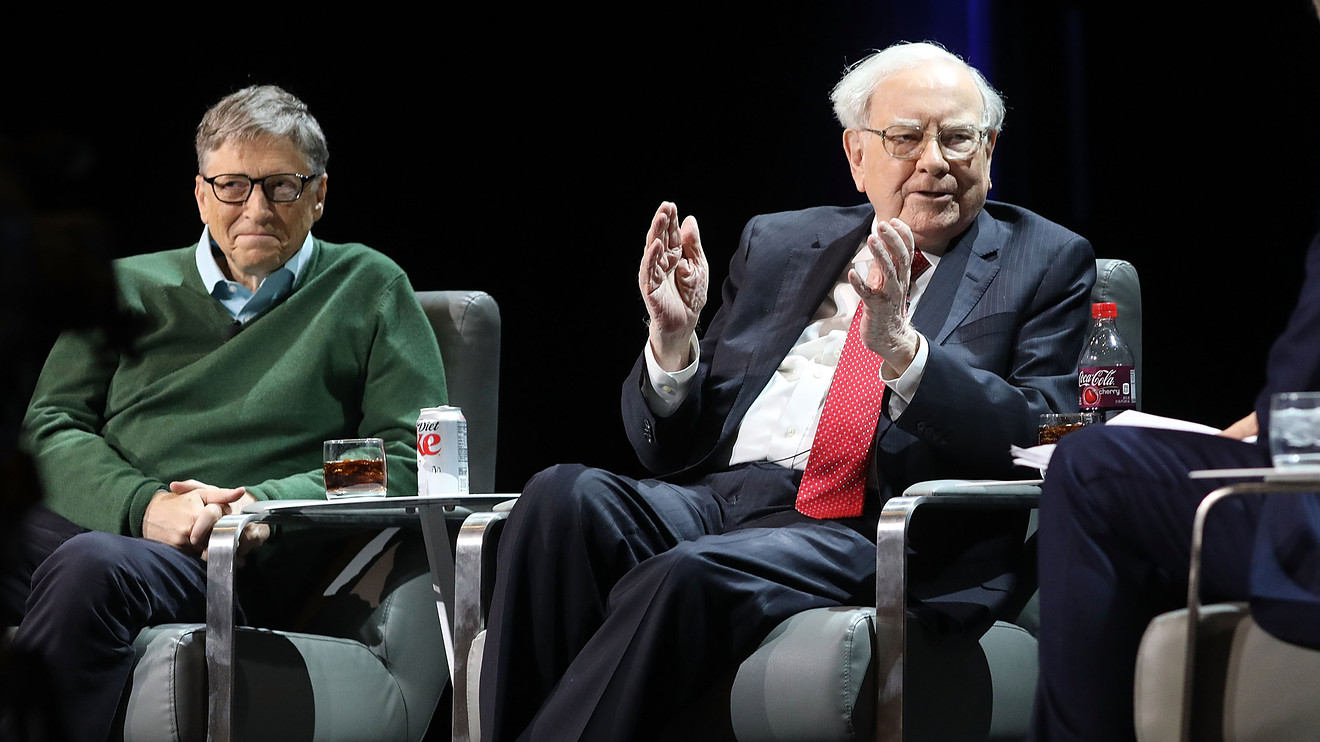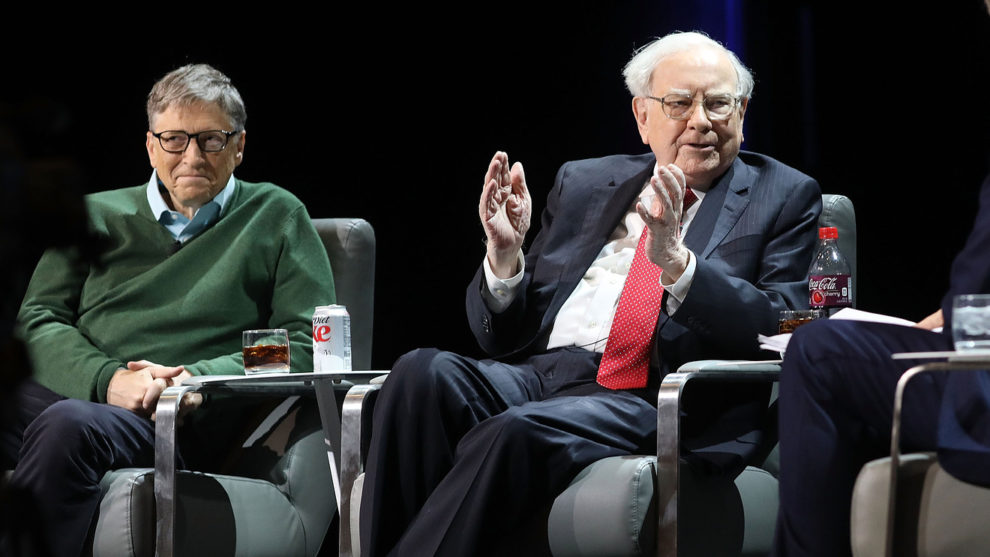
America’s charitable billionaires think big. They get their names on buildings. Most people don’t. They attempt to singlehandedly educate children by setting up their own schools. Few Americans could dream of having such an impact.
While many people are concerned about making ends meet and, perhaps, giving money to their religious institution or school, the wealth are setting out to eradicate disease and world hunger, according to Forbes magazine’s America’s Top Givers of 2018.
Investment guru Warren Buffett topped the list, followed by Microsoft MSFT, -1.21% co-founder Bill Gates and his wife, Melinda Gates; former New York City mayor Michael Bloomberg; WMT, +0.16% Walmart founders the Waltons; and international financier George Soros.
Amazon AMZN, -1.07% founder and CEO Jeff Bezos, who was recently unseated as the world’s wealthiest man by Bill Gates, was not among the top 10 donors, ranking No. 23 out of 50. Buffett donated $3.4 billion in 2018; Bill and Melinda Gates gave out $2.6 billion and Michael Bloomberg donated $767 million.
There were a few recurrent themes among the top 20 donors’ priorities, according to the Forbes list: universities, K-12 education, health-related causes, research to end various diseases, and criminal justice and prison reform.
The Forbes 50 donors appeared to differ from their wealthy peers in one key regard: They seem less interested in giving to religious causes. A 2018 study of high-net-worth philanthropy by U.S. Trust found that 43% of wealthy donors’ charitable dollars went to religious or spiritual causes, but those areas only popped up in a couple of places on the Forbes 50 list. But the Forbes list may not reflect all giving by America’s wealthiest, because it’s based on information provided by the donors themselves and the institutions that receive their largesse.
The Forbes tally varies slightly from other philanthropy lists because it only counted money that was actually given out, as opposed to funds that were promised. The 50 donors on the list gave out $14.1 billion in 2018, up from $12.6 billion in 2017, Forbes reported.
That upward trend hasn’t been happening across all income levels. When adjusted for inflation, charitable giving by individual Americans fell by 1.7% in 2018, according to Giving USA, an annual philanthropy report produced by the Giving Institute in collaboration with the Indiana University Lilly Family School of Philanthropy.
Don’t miss: Why Melinda Gates’s $1 billion pledge for women and girls is a game-changer
Fewer middle-class Americans have donated to charity in recent years, but the overall dollar amount that charities receive hasn’t declined. That’s because very wealthy donors are making up the difference and contributing more.
Critics have pointed out that very wealthy donors devote their considerable resources to their personal whims but are accountable to no one. Anand Giridharadas, a frequent critic of billionaire charity and author of “Winners Take All: The Elite Charade of Changing the World,” has argued that “philanthropy is no substitution for taxation and a fairer set of social arrangements.”
Meanwhile, the philanthropy world has engaged in soul-searching following reports that officials at the MIT Media Lab allegedly tried to conceal disgraced financier Jeffrey Epstein’s role in $7.5 million in donations to the school. MIT has said it will review its fundraising policies as a result.









